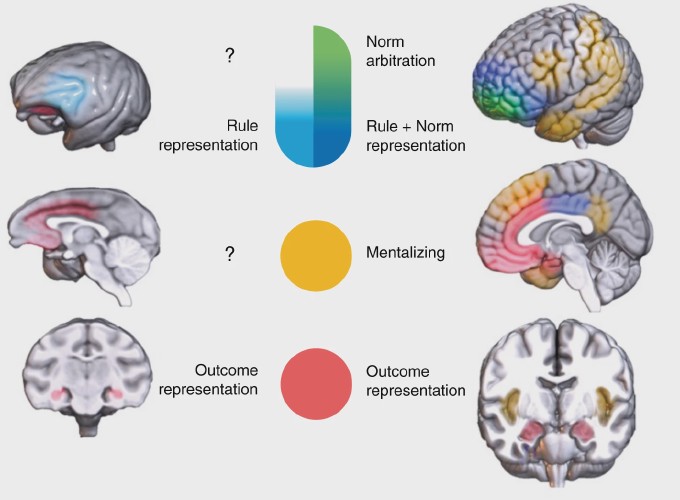
Prefronal cortex and (uniquely) human cooperation

Prefronal cortex and (uniquely) human cooperation
Abstract
Humans have an exceptional ability to cooperate relative to many other species. We review the neural mechanisms supporting human cooperation, focusing on the prefrontal cortex. One key feature of human social life is the prevalence of cooperative norms that guide social behavior and prescribe punishment for noncompliance. Taking a comparative approach, we consider shared and unique aspects of cooperative behaviors in humans relative to nonhuman primates, as well as divergences in brain structure that might support uniquely human aspects of cooperation. We highlight a medial prefrontal network common to nonhuman primates and humans supporting a foundational process in cooperative decision-making: valuing outcomes for oneself and others. This medial prefrontal network interacts with lateral prefrontal areas that are thought to represent cooperative norms and modulate value representations to guide behavior appropriate to the local social context. Finally, we propose that more recently evolved anterior regions of prefrontal cortex play a role in arbitrating between cooperative norms across social contexts, and suggest how future research might fruitfully examine the neural basis of norm arbitration.